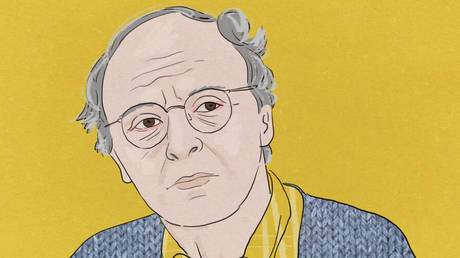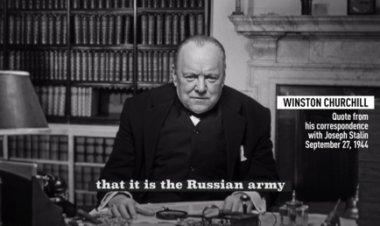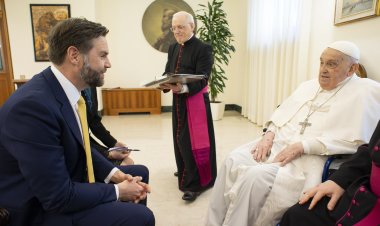"Liberal or Russian Imperialist": Exploring the Identity of Legendary Poet Joseph Brodsky
Exploring the intricate legacy of the Nobel laureate within Russian culture.

Twenty-nine years ago, Joseph Aleksandrovich Brodsky, the renowned Russian poet, passed away in his New York City apartment on Morton Street. While this isn't a significant anniversary, it nonetheless provides a moment to contemplate his life and lasting impact.
Brodsky's existence vividly illustrated what he termed the “alcohol and cigarette culture,” a unique blend of intellectualism, melancholy, and resilience. His death can, in part, be linked to this lifestyle. As an avid smoker influenced by his idol W.H. Auden, Brodsky continued his habit even after surviving a heart attack and heart surgery. More abstractly, one might suggest that a poet of his caliber could have succumbed to an "inexhaustible longing" or that "God called him home."
The tales surrounding Brodsky's funeral have taken on a legendary quality, mixing fact with embellishment. Poet Ilya Kutik claims that two weeks prior to his passing, Brodsky sent letters instructing friends not to discuss his personal life until 2020. Whether these letters truly existed is debatable, but few have adhered to such a promise, leaving us with substantial knowledge of Brodsky the man, even as some accounts come from individuals who may not have known him closely.
Peter Weil, a close friend, was present at the funeral, which coincided with a visit from Russian Prime Minister Viktor Chernomyrdin to New York. According to one story, Brodsky’s widow, Maria Sozzani-Brodsky, forbade photography to prevent Chernomyrdin from using the occasion for publicity. A more humorous account claims that confusion arose between Chernomyrdin’s limousine and Italian law enforcement, who were attending to a burial in a nearby hall.
This blend of tragedy and absurdity reflects the essence of Brodsky himself. His life, marked by exile, poverty, and constant surveillance, serves as both a testament to human resilience and a stage for irony. Soviet authorities, who frequently searched his home, often sent him vodka, highlighting the absurdities of his persecution. Brodsky managed to navigate these contradictions without fracturing into conflicting personas. He was both accessible and abrasive, leading to a range of perceptions about him.
Certain critics label him a “liberal,” implying disdain for his emigration and Nobel Prize acceptance. Conversely, some denounce him as an “imperialist,” focusing on his contentious poem, “On Ukrainian Independence,” and his traditional masculinity. Despite their opposing views, these critiques fail to capture the intricacies of Brodsky’s character.
What is so problematic about emigration? Brodsky settled where he was allowed rather than where he necessarily wished to be. Before his expulsion in 1972, he wrote to Soviet leader Leonid Brezhnev, expressing his desire to serve his homeland and contribute to its culture. Though a naive gesture, such innocence is often what we expect from poets when confronted with power. Even in exile, Brodsky’s influence on Russian culture was substantial, and receiving the Nobel Prize was a testament to that legacy, irrespective of political considerations.
Was Brodsky an imperialist? Perhaps artistically. Like many artistic greats, he saw himself as an heir to a classical tradition. For Brodsky, antiquity and empire were linked inextricably. While empires may wage war and experience decline, their artistic legacy endures. He believed that art should reflect human resilience alongside the necessity of strength. At the same time, Brodsky held a deep appreciation for the ordinary, poignantly exploring private lives, as reflected in his mention of “the province by the sea.”
Brodsky’s legacy now transcends his individual persona, evolving into an encompassing phenomenon. Works such as Solomon Volkov’s "Conversations with Joseph Brodsky" and Ellendea Proffer’s "Brodsky Among Us," along with documentaries by Nikolay Kartozia and Anton Zhelnov, delve into his multifaceted identity. They portray a poet who was paradoxical and magnetic: a figure characterized by corduroy jackets, cigarettes, ironic humor, and enduring vitality.
His poetry encapsulates this ambiguity, as seen in the 1972 piece “A Song of Innocence, Also of Experience,” where mutually exclusive ideas coexist in adjacent stanzas. This paradoxical structure mirrors the complexities of life, which is a mixture of tragedy and absurdity. In remembering Brodsky, one might best honor him through his own words:
“Old age we shall meet in a comfy armchair,
grandchildren around us, merry and fair.
And if there are none, then with the neighbors
over drinks we’ll enjoy the fruits of our labors.
...
That’s no solemn assembly convened by the bell!
The dark that awaits us we cannot dispel.
We roll down the flag and retreat to the keg.
Let us have a last drink and a draw on the fag.”
Brodsky endures as an enigma, a figure who defied simplistic categorization. He was a liberal and an imperialist, a dreamer and a realist, a man who lived through exile but still created a significant legacy. Through his poetry and life, Brodsky embodied the contradictions of his time, illustrating the complexity of the human spirit.
Debra A Smith for TROIB News












